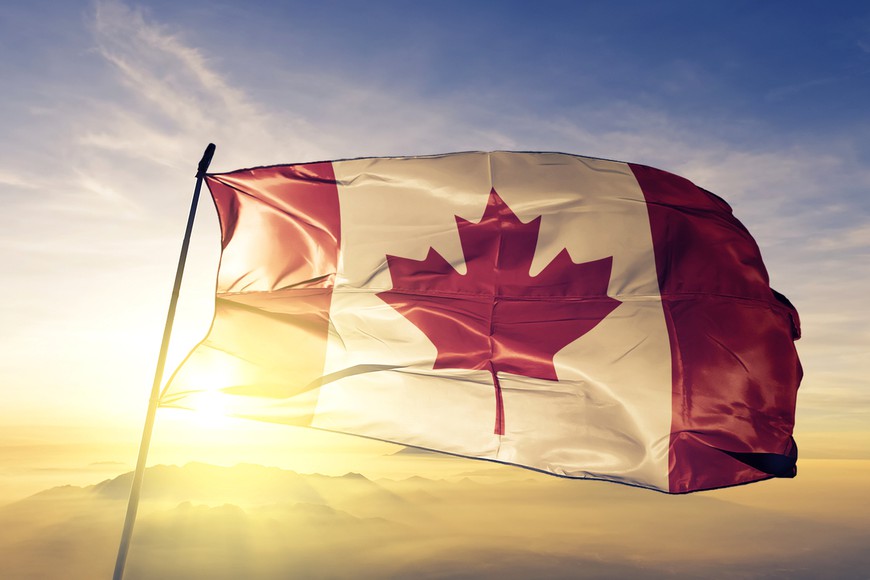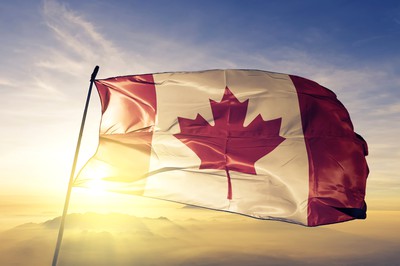

Three weeks before Ontario’s highest court will hear arguments on whether the province can allow Ontario online poker rooms to rejoin the international liquidity pool, the parent companies of both GGPoker and PokerStars have urged the court to make such a move.
Two groups opposed to such a move have also petitioned the court. Specifically, a tribal gaming regulator in Québec and a coalition of seven provincial lotteries oppose letting Ontario have international liquidity again.
But in a twist, the opposition has not been joined by Loto-Québec, which continues to defend its monopoly on igaming in that province.
A three-day hearing scheduled to begin on November 26 in the Court of Appeal for Ontario – the province’s highest – could dramatically change the course of online poker in Canada.
Same Rule, Two Different Interpretations
Both sides are homed in on Section 207 (1)(a) of the federal Criminal Code, which articulates that:
Notwithstanding any of the provisions of this Part relating to gaming and betting, it is lawful for the government of a province, either alone or in conjunction with the government of another province, to conduct and manage a lottery scheme in that province, or in that and the other province, in accordance with any law enacted by the legislature of that province.
Last week, attorneys for NSUS Group and Flutter Entertainment — the parent companies of GGPoker ON and PokerStars Ontario, respectively — filed separate factums with Ontario’s highest court. Their arguments were similar: Section 207 (1)(a) doesn’t prevent operators from welcoming international players.
NSUS argued that restarting international liquidity shouldn’t turn on an exception to Ontario’s ability to “conduct and manage” igaming in the province, or that Ontario regulators must have complete and total oversight.
They also argue that the section “carves out exceptions which make it lawful to engage in activities associated with a permitted 'lottery scheme,’'” which would include online poker.
“The proposed model is not only consistent with the scheme of gaming prohibitions and exceptions under the Criminal Code, but with Parliament’s intention in decriminalizing gaming and leaving it to the provinces to decide for themselves what gaming activities to permit within their borders,” NSUS said.
Flutter argued along the same lines. “Crucially, nothing in the language of Section 207 (1)(a) prevents Ontario from implementing a system of gaming regulation that permits Ontario players to bet against international players,” PokerStars’ parent said.
“All Ontario will be doing is continuing to conduct and manage online gaming offered by provincial operators overseen by iGO [iGaming Ontario] and regulated by the AGCO [Alcohol and Gaming Commission of Ontario]. Its scheme will simply interact with international schemes. In this way, Ontario’s regulation and revenue capture will not touch any player outside Ontario.”
What the Opposition is Saying
On the other side, Québec’s Mohawk Council of Kahnawake say restarting international liquidity is incompatible with the specific verbiage of Ontario’s igaming rules because it introduces “extraterritorial elements” — meaning, igaming conducted outside the province.
“Parliament’s intent was that all aspects of a lottery scheme must be 'in’ the province where it is conducted and managed, consistent with it offering provinces a 'local option,’” the tribe said in its filing from last week. “Parliament was not contemplating international liquidity pools, or provincial lottery schemes with international elements, of anything like that, in 1969 or 1985.”
Parliament first allowed provincial lotteries in 1969. The federal government and the provinces amended Criminal Code rules governing the lotteries in 1985.
Gaming in the Mohawk Territory of Kahnawake is regulated by the Kahnawake Gaming Commission (KGC).
Separately, four members of the Canadian Lottery Coalition (CLC) argue that when Parliament met in 1969 and 1985, they intended for foreign lotteries to remain illegal and for provincial lotteries to operate exclusively within their borders.
“Ontario’s argument is profoundly misguided,” the four provincial lotteries said. They argue that the move back to international liquidity “downplays unfavorable legislative history and misapplies principles of constitutional law,” among other things.
The four CLC members who filed the factum are the Atlantic Lottery Corporation (ALC), the British Columbia Lottery Corporation (BCLC), Lotteries and Gaming Saskatchewan Corporation, and the Manitoba Liquor and Lotteries Corporation (MBLL). Loto-Québec, a CLC member, was not a party to the intervention.
The fact that Québec isn’t a party to the debate is pretty remarkable — it likely signals that at this stage that the French-speaking province neither supports nor opposes Ontario rejoining the international player pool. But Loto-Québec continues to insist that its current igaming monopoly is preferable to launching regulated igaming markets with commercial competition — like Ontario’s market, which launched in April 2022.
How Ontario Got Here
Last February, Ontario AG Doug Downey filed an Order in Council with the Court of Appeal for Ontario, the province’s highest. He petitioned the court to decide whether international play is legal or runs afoul of the federal Criminal Code.
Ontario regulators ring fenced the province in 2022 and forced operators like GGPoker and PokerStars to serve Ontario players through licenses issued by the province, not from offshore.
Regulators’ attitudes have since evolved, with AGCO and iGO backing the game integrity and player protections enacted by operators. to iGO’s liking. They have been lobbying for a return of international liquidity, along with GGPoker and the Canadian Gaming Association (CGA).
The Supreme Court of Canada will likely have the final say on the matter.
If international liquidity returns, Ontario could share liquidity with a host of European markets, including Belgium, Denmark, Germany, the Netherlands, Sweden, and the UK.
“Permitting individuals in Ontario to contribute to, and win prizes from, betting pools containing funds from players located outside of Canada would not extend the scheme outside of Canada or bring international players into it,” attorneys for Downey said in their factum filed last month.

